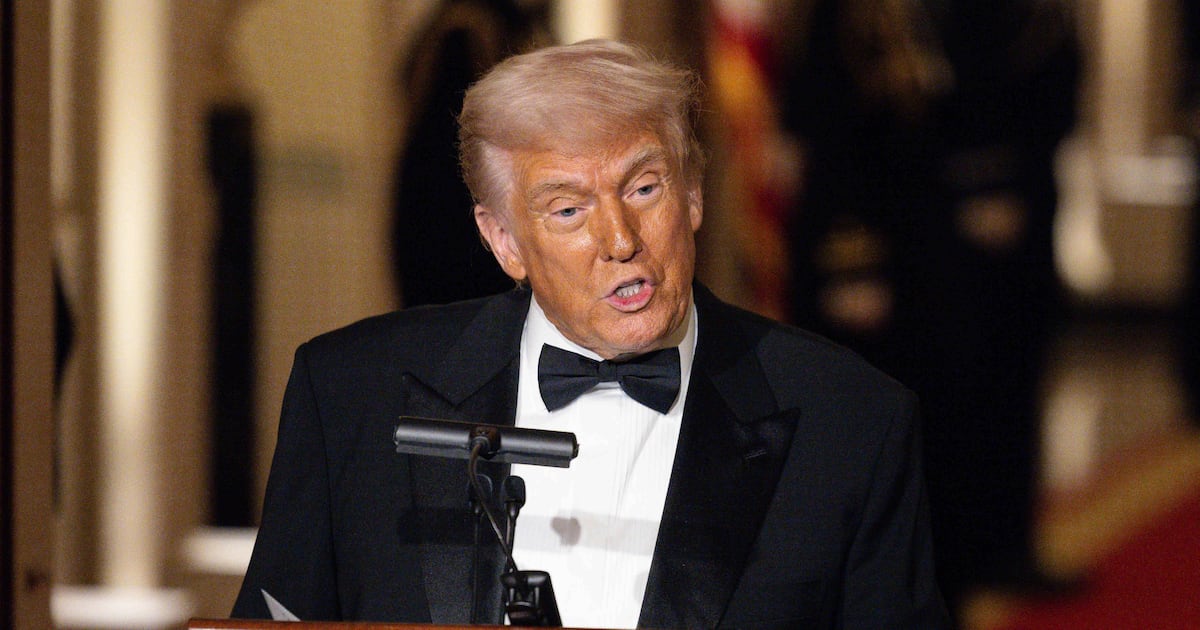A pair of accused Russian spies tried to gather intelligence about U.S. financial markets, and potentially how to disrupt them, by feeding questions to journalists at the Russian state-owned news agency Tass, The Daily Beast has learned. The agency has a long history of giving cover to Russian spies, current and former intelligence officials say.
A criminal complaint released by the Justice Department on Monday lays out how the spies ran an alleged economic intelligence-gathering operation by developing the questions at the request of the news organization, which isn’t identified in the document, so that journalists could pose them to New York Stock Exchange employees in the course of newsgathering. The operation crossed the line between traditional reporting and espionage, in a blurry terrain where Russian spooks have long been comfortable operating.
A person familiar with the investigation of the alleged spying ring confirmed the organization in question is Tass.
The U.S. government alleges that in May 2013, Igor Sporyshev, who was working undercover as a Russian diplomat, contacted Evgeny Buryakov, a banker in Manhattan whom Sporyshev had recruited, and asked him to come up with specific questions that would elicit information about the inner workings of the stock exchange.
Sporyshev told Buryakov that the Tass news agency “wants very much, I don’t know how it came down from the top, but they need three questions with regard to the New York Exchange,” according to a transcript of an intercepted phone conversation.
Sporyshev said he needed the information quickly, in just 15 minutes. Buryakov came up with three questions that suggest he wanted to get an insight into how the stock exchange functions, particularly with respect to automated trading, and what forces might potentially disrupt trading.
Buryakov suggested that Tass ask how the stock exchange uses exchange-traded funds, or ETF, including “how they are used, the mechanisms of use for destabilization of markets.” The accused spy also said the news agency should ask what stock exchange employees thought about “limiting the use of trading robots” and “the potential interest of the participants of the exchange to the products tied to the Russian Federation.”
Tass has a long history of working with the Russian intelligence service. “Tass notoriously, was a clearing house for Russian illegals [or undercover spies] during the Cold War,” said Michael Weiss, a fellow at the anti-Putin Institute of Modern Russia and an occassional Daily Beast contributor.
The news agency famously appointed a former senior official from the SVR, Russia’s main foreign intelligence agency, to a top-level position in 1999. Less has been known about Tass’ post-Cold War connections to the Russian spy agency.
The FBI complaint doesn’t elaborate on whom inside the organization was in contact with the accused Russian spies. But spooks in Moscow were quick to deny the U.S. government’s allegations—on the pages of Tass. Russian Foreign Ministry spokesman Alexander Lukashevich told the agency, “No proof to back up the charges has been presented.”
Oleg Kalugin, an ex-KGB general who ran the agency’s operations in the United States, said Tass has long been a den of spies. “At least half if not more [of Tass employees] were involved in the intelligence business” during the Cold War, Kalugin told The Daily Beast.
A news organization was an ideal home base for intelligence officers because the essential job of spies and reporters isn’t so different. “Their job was to gather and collect information,” he said of Tass reporters working for the intelligence service. “And they would try to recruit people and obtain classified documents. That was the top of the agenda.”
Kalugin himself worked undercover as a Radio Moscow reporter at the United Nations from 1959 to 1964, he said. “I was working for the KGB. Of course I maintained very good working relations with Tass news agency in New York.”
“Little has changed really,” Kalugin added, laughing.
Kalugin said that during the Cold War, political and military intelligence held the greatest interest for Moscow. But now, the main target is information about money and markets.
“To maintain Russia’s economy, financial and economic intelligence is very important,” Kalugin said. “This is what Russia is most interested in now.”





